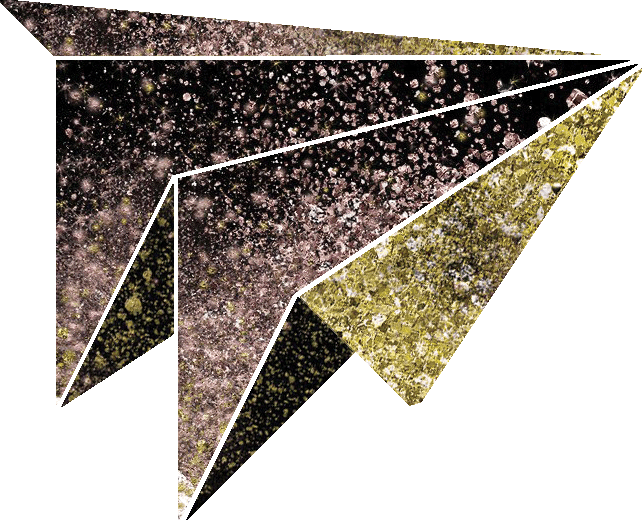When asking for money it often feels like all the benefit is going to the person getting the money, which is why we expect them to be massively grateful and ready to grovel. But in fact most giving is a two-way thing: the giver gets something back. In fact, when donors donate to the arts, we think that they tend to get two things back.
First, as with all acts of generosity or benevolence, doing the right thing makes you feel good. Warm, fuzzy and perhaps a bit smug. Second, and this is special to the arts, someone who gives to an artist gets to be associated with artists, the cool things that artists produce and the values of authenticity and creativity that artists represent.
We’re calling these two benefits Good Feels and Cool Friends and we want to know how making them explicit alters the nature and character of the relationship between the person giving the money and the person receiving it.
Here’s one set of issues arise straight off. Just because you have money to give away, it doesn’t mean you should get the nice fluffy stuff by rights – does it? Are Cool Friends and Good Feels the sorts of things that should be available to anyone with some spare cash, or should those in the arts be doing more to prevent these things falling into the wrong hands?
It is possible – even fairly common – to assess potential funders through an ethical framework, but its a complicated space and we’re not sure that the frameworks we’re using are the right ones. Artists stuck in this space will be familiar with arguments about hands, noses, faces and other appendages that one should consider carefully before cutting off. Advice abounds: don’t be precious! Don’t worry about getting your hands dirty! You can make the money clean!
But maybe being clearer about Cool Friends and Good Feels that are flowing back into the pockets of our financial benefactors will help us to be a bit more discerning about who we take money from. That’s a big part of our experiment. We’re accepting applications from people who want to give money to the Wunderbar Foundation: but if we’re not sure we like them, then, we’re going to do everything we can to stop them getting anything back in return for their cash.
Here’s a second area to investigate. Cool Friends and Good Feels are often taken as a given in donating to the arts: if you have money you can get those things whenever you want them – just like food, or drink, or other commodities – they are an expected outcome of the transaction. And this assumption has come to shape the way in which those seeking money are required to behave: it’s not just the donors that expect Cool Friends and Good Feels – as a receiver you presume you have to give them out.
In fact, in the much of the contemporary funding scene, if you have money you don’t even need to give it away to get the rewards. Huge amounts of money are spent by those who need money on lavish events to bestow these things on those who have money, just because they might, potentially, give some of their money away. Weird?
These try-before-you-buy enticements may hold the the same – or similar – kudos to those received when actually donating. It’s not necessarily as explicit as rich folk lazily imploring court-jester-style entertainment, but fundraisers are conditioned to expect to dance – and they do. We’re all dancing anyway just to get noticed.
And the benefits of Cool Friends – and some of the Good Feels – are being received by people just because they might be potential donors. The transaction has moved from ‘Please can you give me the £5 I need to do this thing’ to ‘Please can you give me the £5 I need to do this thing and I’ll do this other stuff for free, whoohoo’. In fact, I’ll do all this stuff for free anyway! Who’s paying for all this extra work?
Some logic puzzles
Here are a couple of fun logic puzzles.
The Good Feels come because if you do the right thing, then you feel good. But something funny happens if you try to do the right thing in order to get the Good Feels. It won’t work. Here’s why:
Usually, when you know a hypothetical – if a then b – then you can use it in your reasoning in two different ways. First, you can use it to answer the question ‘What should I believe?’. So, if you know the hypothetical if a then b, and you know that a, then you should believe that b. So, with our hypothetical, if you know that someone is doing the right thing, you can reason that they’ll get some Good Feels.
Second you can use it to answer the question ‘What should I do?’. So, if you want b, and you know that if a then b, then you bringing a about will be a way to get what you want.
The weird thing about the hypothetical if you do good then you feel good, is that it can be used in theoretical reasoning but not in practical reasoning. This is because doing good is a funny kind of an action (quite unlike putting the bins out.) If an action is to count as doing good you have to do it for the right kind of reason, in particular you have to do it because it is good. If you do it because you think it afterwards you’ll feel good then you instrumentalise the action – and you won’t get the good feelings. Or not properly, anyway.
So, this is creating a bit of a headache for us. If we’re going to try to balance out the giving-receiving relationship by pointing out that by doing good — donating money — the giver is going to feel good, we’ll be on dangerous ground. If they are donating in order to feel good then recognising this will undermine the good deed and puff—the good feels disappear. So, we’ll end up caught in a lie!
And here’s another problem around the whole ‘Cool Friends’ thing. One of the things that is ‘Cool’ about artists is their authenticity, their rejection of the commodified world and their pursuit of integrity in art. This is what a person who gives to the arts might want a share in.
But integrity is clearly the sort of thing we can’t offer for sale: if you try, it will vanish. And it can’t be divided the way money or other commodoties can. This doesn’t mean it can’t be shared, but it can’t be pre-shared, or pre-promised in exchange for cash. If our integrity is not for sale, how can we offer you a piece of it? And what does anyone that expects a piece of it really think they are getting?

